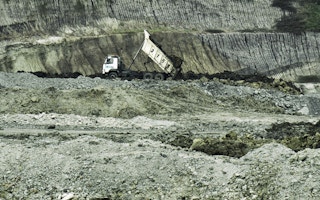Indonesia cannot be held liable for $2 billion in compensation sought by Churchill Mining for the revocation of a coal-mining concession, the World Bank’s International Centre for Settlement of Investment Disputes (ICSID) ruled in a December 6 verdict.
The tribunal determined that Churchill’s claim to the mine site — and therefore its case against Indonesia — was based on forged documents.
The London-registered mining firm, and its Australian subsidiary Planet Mining Pty., filed the case after local officials revoked the company’s license to mine coal in the East Kutai district in Indonesian Borneo.
The ruling was a rare win for a nation-state in an international arbitration hearing, a forum critics complain is often stacked in favor of multinational corporations. In addition to throwing out Churchill’s compensation claim, the tribunal also ordered the company to reimburse Indonesia for 75 per cent of the $12.3 million dollars in legal expenses and court fees the country incurred over the course of the four-and-a-half-year arbitration process.
“We are obviously extremely disappointed by the Tribunal’s decision,” Churchill Chairman David Quinlivan said in a December 7 press statement, adding that the company plans to challenge the ruling.
Churchill itself was not judged to be responsible for the forgeries, but the tribunal criticised the company for failing to conduct adequate due diligence regarding claims made by its local partner, PT Ridlatama.
The verdict is a victory for Indonesia; it is also an indictment of the local governments and regulators that oversee the country’s mining industry. Court documents indicate that forgery, fraud, corruption and disorganisation run rampant in the offices that are charged with managing Indonesia’s immensely valuable natural resources.
“
We are obviously extremely disappointed by the Tribunal’s decision.
David Quinlivan, chairman, Churchill Mining
A seam of corruption
Churchill’s complaint concerns a mining project in East Kutai district in Kalimantan, the Indonesian portion of Borneo Island, where some of the country’s richest coal deposits have been found. In 2007, Churchill bought a 75 per cent stake in Indonesian mining company PT Ridlatama, which claimed to hold four mining licenses in the district.
Churchill thought it had struck it rich when exploration activities revealed far more coal than expected. In April 2008, the company announced its initial target had been exceeded by 150 per cent, with the project’s coal resources now estimated at 250 million metric tons.
Instead, a rival claim emerged.
PT Nusantera, an energy company connected to some of Indonesia’s richest and most powerful men, claimed they held a still-valid exploration license for the same tract of land, issued by the same East Kutai office that granted permits to Ridlatama and Churchill. Each firm claimed it held the exclusive legal right to mine the huge coal deposit discovered there.
The companies battled the case all the way up to Indonesia’s supreme court. Against a backdrop of claims and counterclaims regarding illegal logging and the authenticity of both parties’ documents, the Supreme Court finally ruled against Churchill in April 2012.
With local options exhausted, Churchill turned to international arbitration, a recourse allowed under Indonesia’s bilateral investment treaties with foreign governments. These treaties allow foreign corporations who believe their rights have been violated to sue host governments.
Churchill filed claims based on Indonesia’s treaties with both the United Kingdom and Australia, seeking around $2 billion in damages. These separate processes were eventually merged into a single case in front of the ICSID seeking an award of around $1.3 billion.
The verdict
In 2014, Indonesia applied to have the case dismissed, arguing that Churchill’s claims were based on forged documents. The tribunal agreed to the request. This month’s verdict supported Indonesia’s claims that Ridlatama’s claim to the mine – and by extension, Churchill’s – were based on fraudulent paperwork.
The authenticity of 34 documents dating from 2007 to 2010 was called into question. These included exploration licenses, survey licenses, spatial analyses and legality and cooperation letters, all purportedly signed by officials from either the East Kutai district or East Kalimantan province.
The tribunal agreed the signatures had been forged – in some cases using digital cut-and-paste jobs so crude the signature block obscured surrounding text, and in some cases with a level of sophistication indicating that an auto-pen device may have been used. It also pointed to other irregularities, such as “nonsensical” legends on survey maps reading “I Lover you” and “Oh yes/no.”
In other words, Ridlatama had attempted to substantiate its claim to the mining concession using crudely forged documents. According to the tribunal, this misconduct by Churchill’s local partner, and the company’s lack of valid licenses, fatally undermined any attempts to seek compensation for the loss of the East Kutai mine. “[T]he entire … project is an illegal enterprise affected by multiple forgeries,” the arbitration panel wrote.
In the early years of the arbitration process, Indonesia alleged that Churchill itself was complicit in fraud. In 2015, it dropped this claim, focusing instead on the local partner, Ridlatama.
However, in its ruling the tribunal said it was “struck by the seriousness of the fraud that taints the entire [project]” and slammed Churchill for “lack of diligence overseeing the licensing process and investigating allegations of forgery.”
This story was published with permission from Mongabay.com. Read the full story.










